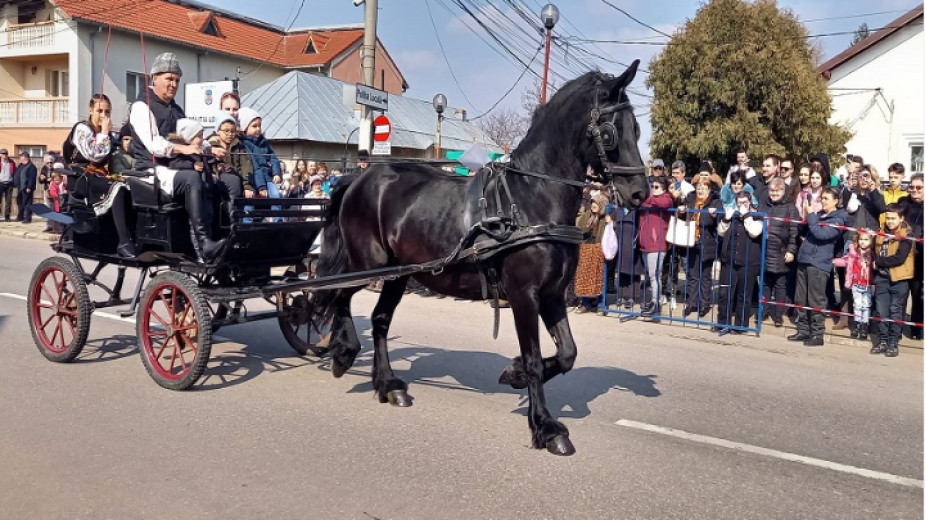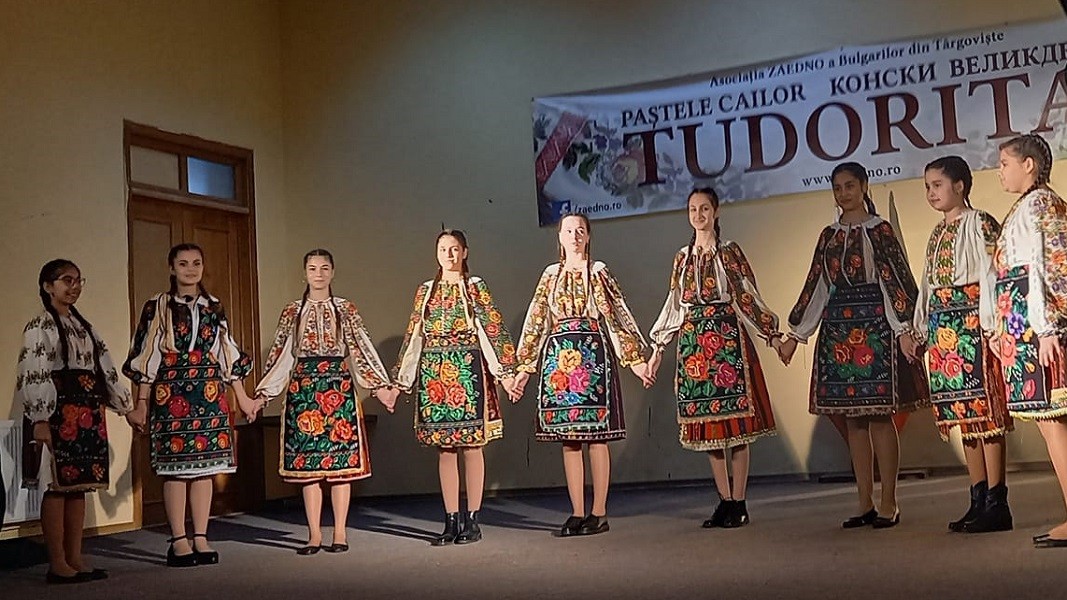
"Matej Vojvoda" is the name of a district in the Romanian town of Targovishte. A Bulgarian community of nearly 700 people lives here, united by the association Zaedno ("Together").
In the building of the association there is a museum of the Bulgarian community in the town, which preserves the history of the first 57 Bulgarian families who settled in Dâmbovița County 171 years ago, reports BTA.
The museum exhibitsold documents, items of everyday life and folk costumes. A shirt with embroidered roses 100 years old, a 1930 photo of the first gas station in this Bulgarian neighborhood, a horse harness from 1910 and a saddle from 1935 are but a few of the exhibits. A list of the municipality provides information on how many Romanians with Bulgarian roots lived there in 1940 and what their family and property status was.
"When they settled in the county, the Bulgarians became known for growing vegetables and for their traditional Bulgarian banitsa, which unlike the Romanian pastry is salty," the founders of the museum told BTA. It opens its doors on a symbolic date - November 30, the Day of Bulgarians in Targovishte.
From the website of the association "Together" http://www.zaedno.ro/ we also learn that at the end of 1854 the Bulgarian settlers, together with the locals, made a full-scale renovation of the Church of St. Niphon and created a cemetery on land donated to the community. And in 1890, priest Nikolae Grigore Arama founded a mixed school, which was later moved to a new location on land donated by industrialist Joseph Samuili. The latest data of the National Statistical Institute of Romania show that the ethnic Bulgarians in Romania number 5 975.
The latest data of the National Statistical Institute of Romania show that the ethnic Bulgarians in Romania number 5 975.
According to the Bulgarian deputy in the Romanian parliament Georgi Nakov, relations between Bulgaria and Romania are developing very well, both economically and culturally.
"I think that we are now seeing a very clear manifestation of Bulgarian national consciousness in Romania," Georgi Nakov told our colleague Vladimir Mitev in a special interview for Radio Bulgaria. - It was also manifested in the celebrations on the occasion of 3 March 2023. During the same week, the Kukeri (so-called Kuchi) festival in Brăneşti and the Horse Easter in Targovishte took place. Shortly before, Trifon Zarezan was celebrated in the village of Izvoarele. The communities of Băleni Sârbi and Targovishte are rather geographically similar, but Izvoarele is quite different. In Banat we are several communities, but we are part of the same Bulgarian national minority."
The festivities strengthen not only the official relations between Romania and Bulgaria, but also the relations among the citizens, Georgi Nakov further pointed out. His words are confirmed by Ambassador Radko Vlajkov, who at the reception at the Embassy for Bulgaria's March 3 National Day in Bucharest said "We, Bulgarians and Romanians, have rediscovered each other."
In the coming days stay tuned for more interesting information about the relations between Bulgaria and Romania in Vladimir Mitev's interviews for Radio Bulgaria.
English version: Elizabeth Radkova
A Bulgarian-designed electric vessel has gained international recognition , reaching the final round of the prestigious Gussies Electric Boat Awards 2025 . The awards celebrate the world’s most innovative and sustainable electric boats and yachts,..
A case of a dog run over by a doctor in a district of Sofia has caused a wave of public indignation and a protest in Sofia, which will take place today in front of the Military Medical Academy - the medical institution where the medic..
Forty Bulgarian schools in 22 US states have become a second home for the children of Bulgarian emigrants. They create continuity between generations and teach about Bulgarian history, traditions, and culture. They also create..

+359 2 9336 661
